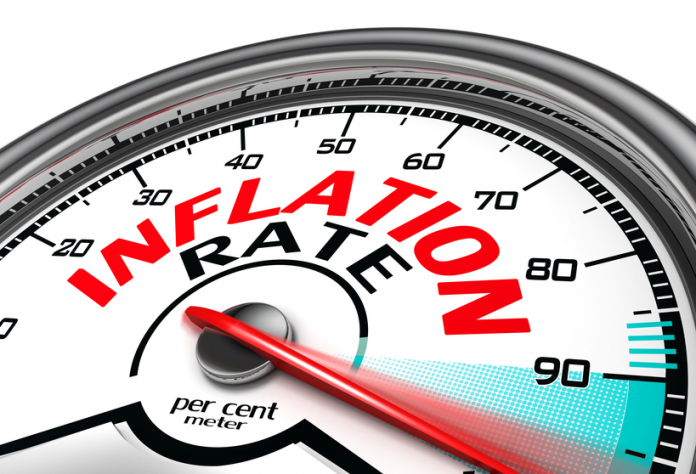Featured
Inflation rises for 19th consecutive months as food prices remain the culprit
Published
5 years agoon

Inflation rises for 19th consecutive months as food prices remain the culprit
Read Also:
The latest inflation data released today by the National Bureau of Statistics (NBS) for March 2021, has shown that the headline inflation rose for the 19th consecutive month, rising by 84 basis points (bps) to 18.17%.
The print is 7bps lower than an earlier projection by Cordros Capital Research, put at 18.24% year-on-year (y/y) and 27bps higher than Bloomberg median consensus estimate of 17.90% y/y.
Beyond the increase from both the food (+116bps) and core (+29bps) baskets, the unfavourable base from last year’s corresponding period added another layer of pressure to the headline number amid the existing structural constraints.
On a month-on-month (m/m) basis, headline CPI rose by 2bps to 1.56%. Food inflation rose marginally by 1bp to 1.89% m/m.
Apart from the country’s persistent security challenges and the lingering impact of supply chain disruptions, experts believe higher price of premium motor spirit (PMS) popular called petrol also contributed to the pressures in the food index through the increase in transport costs.
Accordingly, farm produce prices (+14bps) neutered the positive surprise from processed food (-2bps).
Given the low base effect from the prior year, food inflation rose sharply by 116bps to 22.95% y/y (February: 21.79% y/y), driven by broad-based expansion across farm produce (+131bps to 23.00% y/y), processed foods (+112bps to 22.93% y/y) and imported foods (+8bps to 16.86% y/y).
As expected, the core inflation increased by 29bps to 12.67% y/y – the highest since May 2017 (13.02% y/y).
Experts held that the increase was primarily due to the rise in transport and energy costs associated with the increase in PMS prices amid FX liquidity challenges.
The NBS PMS Price watch lends credence to this, as the national average price of PMS rose by 18.8% y/y to N172.68/litre in March compared with N145.40/litre in March 2020.
Also, diesel prices increased to N235.41/litre from N226.78/litre in March 2020.
Consequently, prices rose across all the components of the core inflation. Notably, the health component (+61bps to 15.77% y/y) of the core index is now at the highest level since the NBS started keeping current data series while transport prices (+60bps to 14.73% y/y) rose to a 48-month high and HWEGF (+35bps to 10.13% y/y) – the highest since June 2017 (10.93% y/y).
On a month-on-month basis, core inflation surprised positively as it moderated by 14bps to 1.06% m/m – the lowest reading in five months.
Share this:
- Click to share on X (Opens in new window) X
- Click to share on Facebook (Opens in new window) Facebook
- Click to share on WhatsApp (Opens in new window) WhatsApp
- Click to share on Pocket (Opens in new window) Pocket
- Click to share on Telegram (Opens in new window) Telegram
- Click to email a link to a friend (Opens in new window) Email
- Click to share on LinkedIn (Opens in new window) LinkedIn
You may like


Nigeria’s Inflation Moderates to 14.45% in November


Nigeria’s Inflation Eases to 20.12% in August as Food Prices Retreat


Nigeria’s Inflation Hit 34.80% in December – NBS


Inflation Drops to 32% in August to Sustain Respite — NBS


BREAKING: Inflation Rate Jumps to 34.19% in June


ECONOMY: Inflationary Pressures Remain Front Burner amid CBN, FG’s Ambitious Strategy






